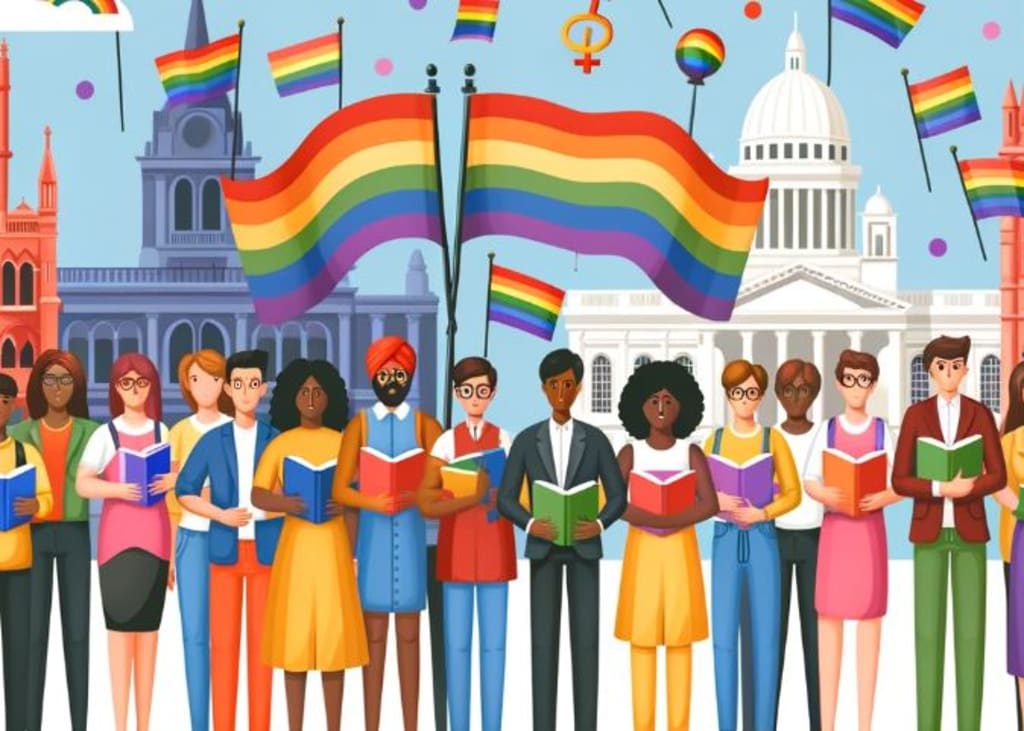
Every October in the U.S., and February in the UK, LGBTQ History Month is celebrated, offering a dedicated moment to reflect on and recognize the significant contributions and struggles of lesbian, gay, bisexual, transgender, and queer individuals throughout history. Originating from a need to acknowledge the largely untold and unrecognized stories of the LGBTQ community, this month serves as a vital educational and introspective period. It seeks to foster an understanding and respect for LGBTQ culture, history, and rights, contributing to a more inclusive and equitable society.
The Significance of LGBTQ History Month
A Time for Recognition and Remembrance
LGBTQ History Month is an essential period for acknowledging and honoring the numerous contributions of LGBTQ individuals in various fields such as arts, science, politics, and more. It's a time to celebrate the progress achieved in the fight for equality while remembering the hardships and resistance faced by the community. This commemoration is not only about honoring the past but also about learning from it to shape a more inclusive future.
Educational Impact
One of the primary goals of LGBTQ History Month is to educate the public about the rich history and diversity within the LGBTQ community. It's an opportunity to correct misconceptions, dispel stereotypes, and highlight the community's struggles and achievements. Schools, colleges, and various institutions participate by organizing events, discussions, and educational programs, thereby fostering an environment of understanding and acceptance.
Strengthening Community
LGBTQ History Month also plays a crucial role in strengthening the sense of community among LGBTQ individuals. By recognizing their shared history and collective struggles, it fosters a sense of pride, solidarity, and belonging. This month encourages LGBTQ individuals and allies to come together, support each other, and work towards common goals of equality and justice.
Advocacy and Continued Progress
The observance of LGBTQ History Month is a powerful platform for advocacy and continues the push for equal rights and acceptance. It reminds society of the ongoing challenges faced by LGBTQ individuals and the importance of continuing the fight against discrimination and prejudice. It's a time to reflect on how far the community has come and the journey that still lies ahead.
Expansion of LGBTQ History Month
Global Influence and Adaptation
LGBTQ History Month has seen growing recognition and celebration worldwide, adapting to different cultural contexts and historical backgrounds. Countries around the globe now host their events and campaigns, contributing to a global movement towards LGBTQ acceptance and rights. This international dimension highlights the universal nature of the struggle for LGBTQ rights and the shared humanity across borders.
Intersectionality and Broadening Perspectives
The observance of LGBTQ History Month has also evolved to embrace intersectionality, acknowledging that LGBTQ identities intersect with other identities such as race, ethnicity, disability, and socioeconomic status. This broader perspective ensures a more inclusive and representative understanding of the LGBTQ community's diversity and challenges.
Future Directions and Challenges
Enhancing Visibility and Representation
Despite significant progress, there is a continuing need to enhance the visibility and representation of all members of the LGBTQ community, particularly those who are marginalized or underrepresented. Future observances of LGBTQ History Month can focus on amplifying these voices and stories, ensuring that everyone in the community is recognized and celebrated.
Addressing Ongoing and Emerging Challenges
LGBTQ individuals still face numerous challenges worldwide, including discrimination, violence, and lack of legal protections. LGBTQ History Month is a crucial time to highlight these issues, advocate for change, and support efforts to address and overcome these challenges.
Conclusion
LGBTQ History Month is not just a time for reflection and education; it's a celebration of life, diversity, and the continued struggle for equality. Its significance extends beyond the LGBTQ community, serving as a reminder to all of society about the importance of understanding, acceptance, and human rights. By delving into the past and celebrating the achievements and challenges of LGBTQ individuals, we pave the way for a future marked by inclusivity and equality.
Expanded FAQ Section
Q : Why is it important to learn about LGBTQ history?
A : Learning about LGBTQ history is essential for understanding the social, cultural, and legal challenges faced by LGBTQ individuals and the community's contributions to society. It fosters empathy, respect, and a deeper appreciation for diversity and human rights.
Q : Has LGBTQ History Month led to tangible changes ?
A : Yes, LGBTQ History Month has contributed to raising awareness, changing attitudes, and promoting legal and social changes benefiting LGBTQ individuals. It has helped increase visibility and support for the LGBTQ community, though there is still much work to be done.
Q : How do different cultures celebrate LGBTQ History Month ?
A : Different cultures celebrate LGBTQ History Month in various ways, reflecting their unique historical and cultural contexts. Celebrations can include parades, exhibitions, public discussions, and educational events, all aimed at highlighting LGBTQ history and rights.
Q : Can non-LGBTQ individuals participate in LGBTQ History Month ?
A : Absolutely, non-LGBTQ individuals are encouraged to participate in LGBTQ History Month. Allies play a crucial role in supporting the community, advocating for equal rights, and helping to educate others about LGBTQ history and issues.
Q : How can educators incorporate LGBTQ history into their curriculum ?
A : Educators can incorporate LGBTQ history into their curriculum by including LGBTQ figures and events in history lessons, using inclusive language, providing resources on LGBTQ topics, and creating a safe and supportive classroom environment for all students.
Q : What can be done to improve the celebration of LGBTQ History Month ?
A : To improve the celebration of LGBTQ History Month, efforts can be made to ensure more comprehensive and inclusive events, greater support for marginalized voices within the LGBTQ community, and stronger advocacy for LGBTQ rights and education.
Q : Are there resources available for those who want to learn more about LGBTQ history ?
A : Yes, there are numerous resources available for those interested in learning more about LGBTQ history, including books, documentaries, websites, and community organizations that provide educational materials and support.
This expanded article and FAQ section aims to provide a more in-depth understanding of the significance and impact of LGBTQ History Month, highlighting its importance in promoting equality, education, and community among LGBTQ individuals and allies.
About the Creator
LGBTQ Mag
Passionate about storytelling and strongly committed to LGBTQ rights, I write articles dedicated to amplifying the voices and experiences of the LGBTQ community.






Comments
LGBTQ Mag is not accepting comments at the moment
Want to show your support? Send them a one-off tip.